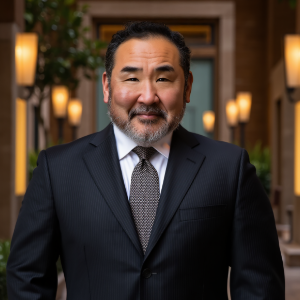Premises liability cases occur when someone is injured on another person’s property because the property owner failed to maintain safe conditions. These injuries can happen anywhere—stores, restaurants, apartment complexes, parking lots, sidewalks, hotels, or private homes.
Yet many victims struggle to understand what legally qualifies as negligence and what does not. California law includes specific standards, and insurance companies frequently dispute these cases unless the evidence is strong.
This guide explains how premises liability works in Orange County and what factors determine whether a property owner is responsible.
1. What Is Premises Liability?
Premises liability holds property owners, businesses, and managers responsible when their negligence causes injury. Common examples include:
Slip and fall accidents
Trip hazards (uneven flooring, broken concrete)
Unsafe stairways
Poor lighting
Spilled liquids not cleaned promptly
Falling merchandise
Lack of handrails
Hidden dangers
Negligent security
Victims often consult a slip and fall accident lawyer in Irvine to determine whether a dangerous condition meets the legal criteria for a claim.
2. The Legal Standard: Duty of Care
California law requires property owners to use reasonable care in maintaining their premises. This includes:
Conducting regular inspections
Fixing hazards promptly
Warning visitors about known dangers
Following safety regulations
Training employees to handle hazards
The key question is whether the owner acted as a reasonably careful property owner would under similar circumstances.
3. How Negligence Is Proven in a Premises Liability Case
To prove the property owner was negligent, victims must show:
A. A Dangerous Condition Existed
Examples include:
Wet floors
Broken pavement
Loose carpeting
Poor lighting
Structural defects
Missing safety rails
B. The Owner Knew or Should Have Known About the Hazard
This can be proven by:
Maintenance logs
Employee statements
Surveillance footage
Prior complaints
Industry safety standards
C. The Hazard Caused the Injury
There must be a clear connection between the dangerous condition and the accident.
D. The Injury Resulted in Damages
Such as medical bills, lost wages, disability, or pain and suffering.
4. The Importance of Evidence in Premises Cases
Evidence disappears quickly in premises liability incidents.
Key evidence includes:
Photographs of the hazard
Incident reports
Witness statements
Surveillance video
Maintenance records
Medical documentation
Victims with serious or traumatic injuries may later require the help of a brain injury lawyer in Irvine, especially when falls result in concussions or neurological symptoms.
5. Common Types of Premises Liability Cases in Orange County
Slip and Fall Accidents
Most commonly caused by:
Spilled liquids
Recently mopped floors
Leaks
Food debris
Rainwater accumulation
Trip Hazards
Such as:
Uneven sidewalks
Broken tiles
Exposed cords
Inadequate lighting
Premises Security Failures
Including:
Lack of security guards
Broken locks
Poor lighting in parking lots
Failure to prevent foreseeable crimes
Commercial Property Incidents
These often involve insurance companies with aggressive defense strategies, sometimes requiring involvement from a truck accident attorney in Orange County when commercial deliveries or vehicles are involved in creating the hazard.
6. When a Property Owner Is Not Liable
Property owners may not be responsible if:
The hazard was open and obvious
The injured person was trespassing
The victim ignored posted warnings
The victim created the hazard
The hazard was too new for the owner to have discovered it
These exceptions make early legal analysis essential.
7. When to Contact an Attorney
You should speak with an attorney when:
Injuries are serious or long-lasting
There is uncertainty about liability
Surveillance video may be erased
Businesses deny responsibility
Multiple insurance companies are involved
Medical bills are increasing
A personal injury law firm in Irvine can secure evidence quickly and build a strong case before important documentation disappears.
Conclusion
Premises liability law in California requires proving much more than “you slipped and fell.” Establishing owner negligence demands quick action, detailed evidence, legal expertise, and a clear understanding of how dangerous conditions are evaluated. With experienced trial lawyers involved early, victims can protect their rights and pursue full compensation.
About the Author
Yoshiaki C. Kubota is a senior trial attorney and founding partner of Kubota & Craig, PC, a National and Regional Tier 1 personal injury law firm. Recognized by Best Lawyers, the Orange County Trial Lawyers Association, and the National Trial Lawyers Top 100, he represents clients in premises liability, catastrophic injury, motor vehicle collision, and wrongful death cases throughout Orange County.















